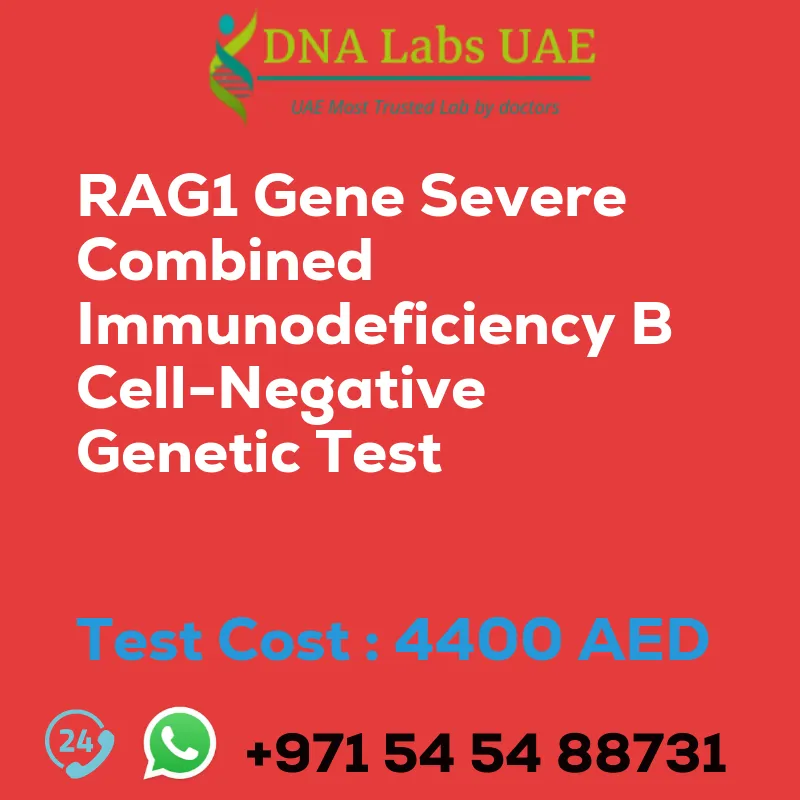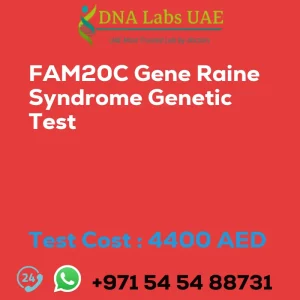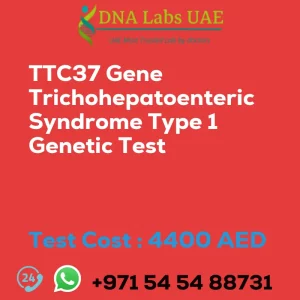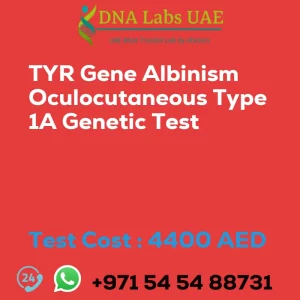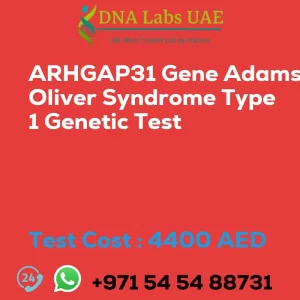RAG1 Gene Severe combined immunodeficiency B cell-negative Genetic Test
Test Name: RAG1 Gene Severe combined immunodeficiency B cell-negative Genetic Test
Components: Blood or Extracted DNA or One drop Blood on FTA Card
Price: 4400.0 AED
Sample Condition: Blood or Extracted DNA or One drop Blood on FTA Card
Report Delivery: 3 to 4 Weeks
Method: NGS Technology
Test type: Osteology Dermatology Immunology Disorders
Doctor: Dermatologist
Test Department: Genetics
Pre Test Information: Clinical History of Patient who is going for RAG1 Gene Severe combined immunodeficiency, B cell-negative NGS Genetic DNA Test. A Genetic Counselling session to draw a pedigree chart of family members affected with RAG1 Gene Severe combined immunodeficiency, B cell-negative NGS Genetic DNA Test gene RAG1
Test Details: RAG1 gene severe combined immunodeficiency (SCID) is a rare genetic disorder characterized by a defect in the RAG1 gene. This gene is responsible for encoding an enzyme called Recombination Activating Gene 1, which plays a crucial role in the development and function of the immune system. Individuals with RAG1 gene SCID have a severely compromised immune system, particularly affecting the development of B cells. B cells are a type of white blood cell responsible for producing antibodies that help fight infections. In RAG1 gene SCID, B cells are either absent or present in extremely low numbers, leading to a high susceptibility to infections.
NGS (Next-Generation Sequencing) genetic testing is a type of genetic test that allows for the simultaneous analysis of multiple genes or even the entire genome. In the case of RAG1 gene SCID, NGS genetic testing can be used to identify specific mutations or variants in the RAG1 gene that may be responsible for the disorder. NGS genetic testing for RAG1 gene SCID involves obtaining a DNA sample from the individual, typically through a blood sample. The DNA is then sequenced using advanced sequencing technologies, which can identify variations or mutations in the RAG1 gene.
The results of the NGS genetic test can help confirm a diagnosis of RAG1 gene SCID and provide valuable information for genetic counseling, family planning, and potential treatment options. It is important to note that NGS genetic testing is a complex and specialized procedure that requires expertise in genetic analysis and interpretation. Therefore, it should be performed by qualified healthcare professionals or genetic testing laboratories.
| Test Name | RAG1 Gene Severe combined immunodeficiency B cell-negative Genetic Test |
|---|---|
| Components | |
| Price | 4400.0 AED |
| Sample Condition | Blood or Extracted DNA or One drop Blood on FTA Card |
| Report Delivery | 3 to 4 Weeks |
| Method | NGS Technology |
| Test type | Osteology Dermatology Immunology Disorders |
| Doctor | Dermatologist |
| Test Department: | Genetics |
| Pre Test Information | Clinical History of Patient who is going for RAG1 Gene Severe combined immunodeficiency, B cell-negative NGS Genetic DNA Test. A Genetic Counselling session to draw a pedigree chart of family members affected with RAG1 Gene Severe combined immunodeficiency, B cell-negative NGS Genetic DNA Test gene RAG1 |
| Test Details |
RAG1 gene severe combined immunodeficiency (SCID) is a rare genetic disorder characterized by a defect in the RAG1 gene. This gene is responsible for encoding an enzyme called Recombination Activating Gene 1, which plays a crucial role in the development and function of the immune system. Individuals with RAG1 gene SCID have a severely compromised immune system, particularly affecting the development of B cells. B cells are a type of white blood cell responsible for producing antibodies that help fight infections. In RAG1 gene SCID, B cells are either absent or present in extremely low numbers, leading to a high susceptibility to infections. NGS (Next-Generation Sequencing) genetic testing is a type of genetic test that allows for the simultaneous analysis of multiple genes or even the entire genome. In the case of RAG1 gene SCID, NGS genetic testing can be used to identify specific mutations or variants in the RAG1 gene that may be responsible for the disorder. NGS genetic testing for RAG1 gene SCID involves obtaining a DNA sample from the individual, typically through a blood sample. The DNA is then sequenced using advanced sequencing technologies, which can identify variations or mutations in the RAG1 gene. The results of the NGS genetic test can help confirm a diagnosis of RAG1 gene SCID and provide valuable information for genetic counseling, family planning, and potential treatment options. It is important to note that NGS genetic testing is a complex and specialized procedure that requires expertise in genetic analysis and interpretation. Therefore, it should be performed by qualified healthcare professionals or genetic testing laboratories. |

